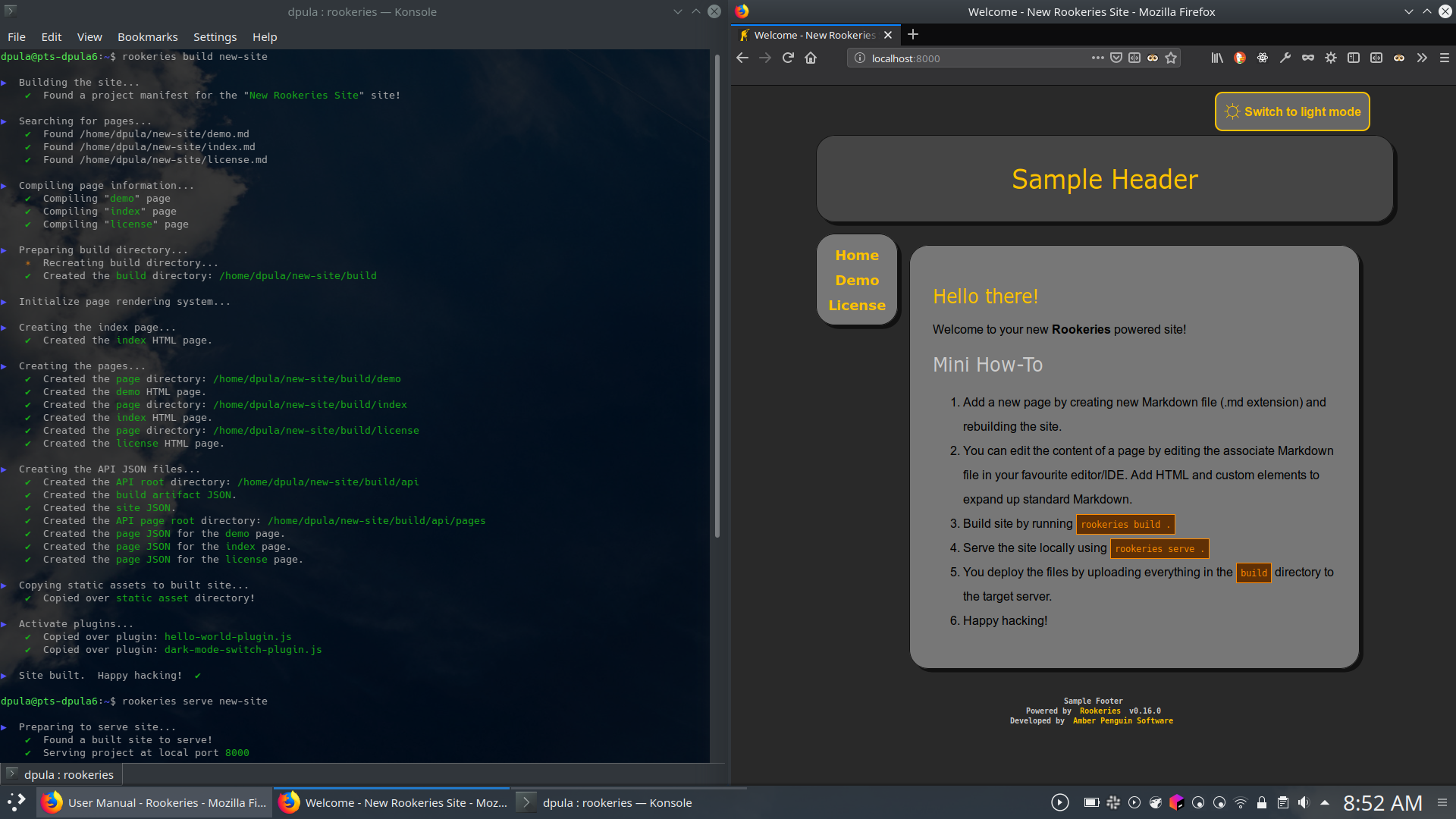Recovering from PyCon Canada 2019, and the holidays took longer than I expected. However I am pleased to announce the release of version 0.17.0 of Rookeries to start off this new year!
Version 0.17.0 includes a number of improvements to the serve command:
- Auto-building of the site when a file in a project changes.
- Opening of the resulting build site in a browser using the
--openflag. - Auto-refreshing of the opened site when in development mode.
In addition, I added:
- Multi-template support which will allow for building out complex templates in the future.
- Improvements to the UX experience.
If you are running version 0.16.0, you can run a re-install using the rookeries-online-installer.sh to update to the latest version. Otherwise you can install v0.17.0 by following the instruction on the Download page.
Next Steps
As for what I plan to work on next, I want to improve the infrastructure around downloading, installing and working with both plugins and templates. I will be using my new site for my Juggling JSON with jq Cookbook ebook as a test bed for improving working with Rookeries. That way I have some real use cases outside of Rookeries’ project page. I am looking forward to working on both projects and see how they both develop in parallel.
Do you know that my mailing list is the first to know about releases and developments around Rookeries? Consider subscribing to the mailing list to be among the first to know!
